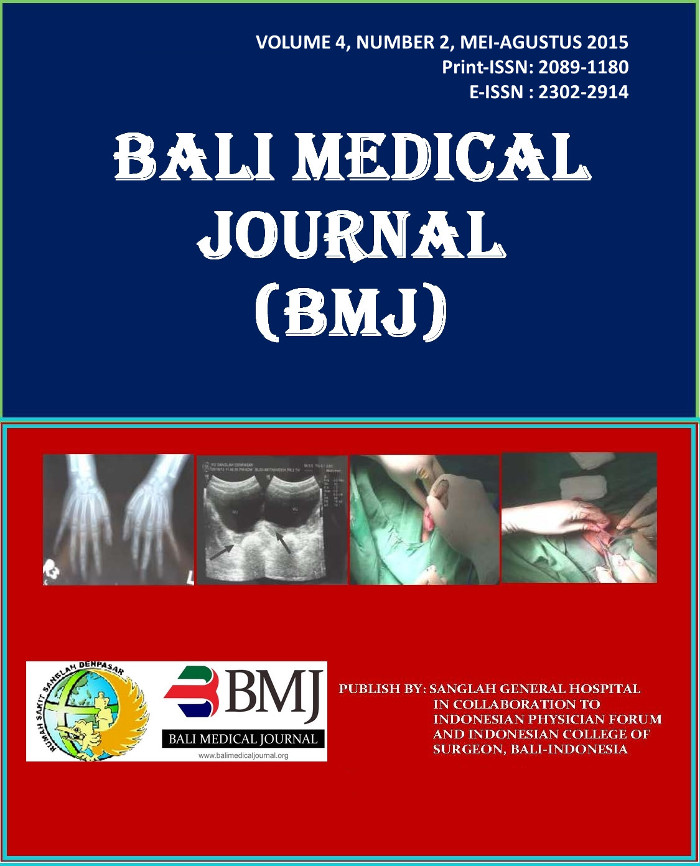CHANGES OF mRNA CASPASE-3 AFTER FIRST CYCLE OF CHEMOTHERAPY AS BIOMARKER ASSOCIATE TO CHEMOTHERAPY NEGATIVE RESPONSE IN LOCALLY ADVANCED BREAST CANCER
Abstract
Background: Problems caused by behaviour of biology molecular in locally advanced breast cancer still unpredictable. This study aims to identify the mRNA caspase-3 as a predictive biomarker associated to chemotherapy sensitivity following neoadjuvant chemotherapy (NAC) in patients with locally advanced breast cancer. Methods: Open biopsy before and core biopsy after first cycle neoadjuvant chemotherapy of 62 locally advanced breast cancer patients was analysed for mRNA caspase-3 by Reverse Transcription - Polymerase Chain Reaction (RT-PCR) and this was correlate with response to NAC using American Joint Committee on Cancer (AJCC) creteria. Results: The total mean of mRNA caspase-3 expression before chemotherapy was 12.51±3.03 and after chemotherapy was 11.64±3.13. Negative response to chemotherapy was 44 (70.96%) and positive response was 18 (29.03%). The result of data with Phi and Cramer’s V analysed showed that decrease of mRNA caspase-3 after chemotherapy first cycle as a risk factor to chemotherapy negative response in patients with locally advanced breast cancer was significantly (p = 0.007). Conclusion: Decrease of mRNA caspase-3 after chemotherapy first cycle correlated with chemotherapy negative response in patients with lacally advanced breast cancer.Downloads
Download data is not yet available.
Published
2015-08-17
How to Cite
WIDIANA, I. K. et al.
CHANGES OF mRNA CASPASE-3 AFTER FIRST CYCLE OF CHEMOTHERAPY AS BIOMARKER ASSOCIATE TO CHEMOTHERAPY NEGATIVE RESPONSE IN LOCALLY ADVANCED BREAST CANCER.
BALI MEDICAL JOURNAL, [S.l.], v. 4, n. 2, aug. 2015.
ISSN 2302-2914.
Available at: <https://ojs.unud.ac.id/index.php/bmj/article/view/21700>. Date accessed: 21 feb. 2026.
Issue
Section
Articles
Keywords
mRNA; caspase-3; neoadjuvant; chemotherapy; locally advanced breast cancer.


